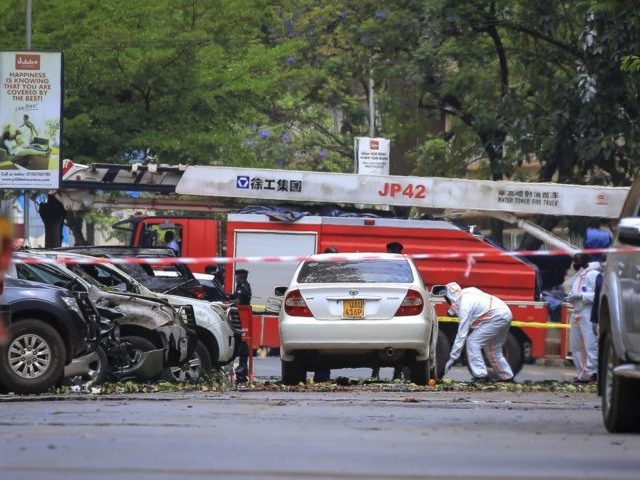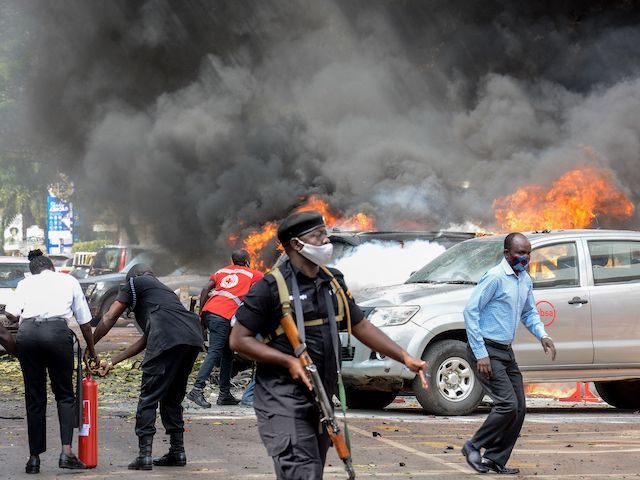A local affiliate of the Islamic State terror group claimed responsibility for three suicide bombings in Kampala, Uganda’s national capital, on Tuesday that killed three people and forced an evacuation of the nation’s parliament, Uganda’s Daily Monitor reported.
The suicide bombings occurred minutes apart on the morning of November 16. The first explosion took place near Kampala’s central police station while the second and third bombs detonated just outside the capital’s parliament building.
“A suicide bomber wearing a backpack detonated near the checkpoint at the police station, killing two,” Uganda Police Force spokesman Fred Enanga told reporters on Tuesday. “The second attack, involving two suicide bombers on motorbikes, killed one person.”
Ugandan President Yoweri Museveni condemned the bombings in Kampala as acts of “urban terrorism” in a statement issued Tuesday evening.
“Unfortunately, three people died in today’s incident apart from the three suicide bombers,” he said. “The injured are 36.”
An unnamed diplomat in Uganda told Reuters on Tuesday, “two police officers were killed” in the explosions. Enanga said 33 people were being treated for injuries sustained in the attack as of November 16, “including five in critical condition.”
The Islamic State of Iraq and Syria (ISIS) claimed responsibility for Tuesday’s bombings in Kampala through a Telegram channel operated by the group’s own propaganda outlet, the Amaq News Agency. Reuters reviewed the ISIS Telegram statement, noting that “the nicknames of the three attackers indicated all were Ugandan.”
Intelligence gathered by the Ugandan Police Force suggests the Kampala bombers were members of the Allied Democratic Forces (ADF), which is a Ugandan terror group loyal to ISIS.

Security forces and forensics officers examine the scene of a blast on a street near the parliamentary building in Kampala, Uganda, November 16, 2021. Two loud explosions rocked UgandUganda’stal, Kampala, early Tuesday, sparking chaos and confusion as people fled what is widely believed to be coordinated attacks. (AP Photo/Hajarah Nalwadda)
“Our intelligence … indicates that these are domestic terror groups that are linked to ADF,” Enanga told reporters on November 16.
“The ADF was founded by Ugandan Muslims but is now based in the forested mountains of the neighbouring Democratic Republic of Congo, where it has been blamed for thousands of civilian deaths,” Reuters detailed on Tuesday.
“Last month, Islamic State claimed its first blast in Uganda — an attack on a police station in Kampala which killed no one,” the news agency recalled. “Days later, it said a ‘security detachment’ in ‘Central Africa Province’ bombed a restaurant. Police said the device killed a waitress and wounded three others, and linked it to the ADF, which has pledged allegiance to Islamic State.”
“Central Africa Province” is an unofficial name used by ISIS to refer to Central, East, and Southern Africa. The international terror organization “announced the launch of the Islamic State Central Africa Province (ISCAP) in April 2019 to promote the presence of ISIS-associated elements within [the regions],” according to the U.S. State Department.

COMMENTS
Please let us know if you're having issues with commenting.